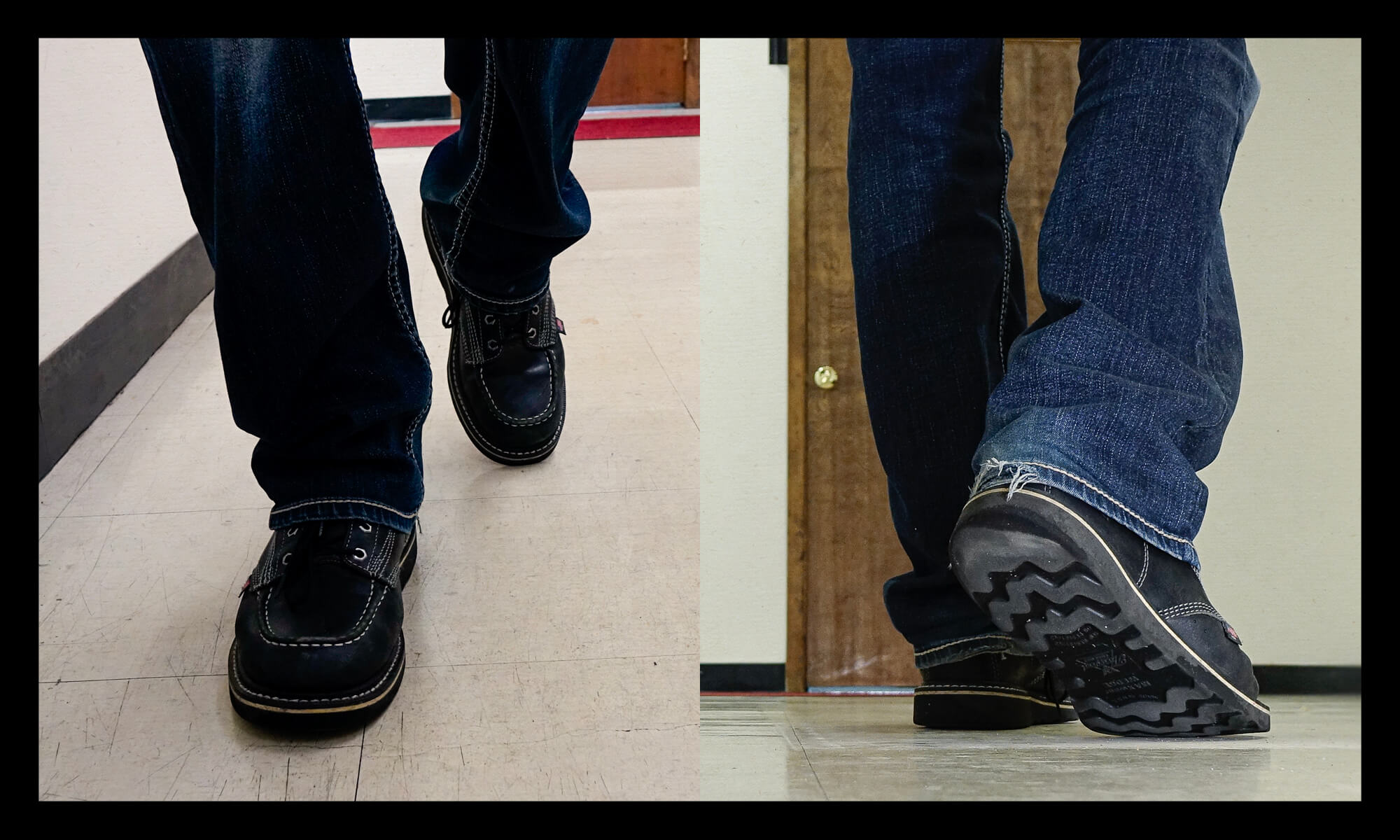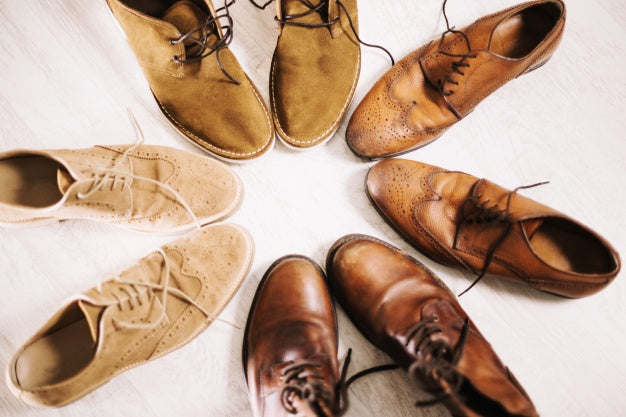Introduction: The Annoyance of Squeaky Leather Shoes
There’s nothing quite as distracting as the sound of squeaky leather shoes. Whether you’re striding confidently into a meeting, catching up with friends, or simply enjoying a leisurely stroll, those annoying squeaks can quickly become an unwelcome companion. Imagine the embarrassment when, with every step, your footwear announces your presence louder than you do!
Squeaking can occur for several reasons, such as moisture, friction, or simply the way the shoes were constructed. But fear not! In this guide, we will explore practical solutions to eliminate those pesky noises, ensuring your leather shoes always look and sound their best. From DIY methods to product recommendations, we’ve got you covered. So, let’s dive in!
Understanding the Causes of Squeaky Leather Shoes
To effectively address the issue of squeaky leather shoes, it’s essential to first understand the root causes. The squeaking noise generally stems from a few common issues:
1. Friction Between Components
Often, the squeak is the result of friction between different parts of the shoe. The insole may rub against the outsole, or the tongue might grind against the sides, causing an irritating noise.
2. Moisture and Humidity
Leather is porous and can absorb moisture from the environment or even from sweat. When this moisture gets trapped inside the shoe, it can cause materials to shift and squeak.
3. Lack of Lubrication
Just like any mechanical object, shoes benefit from a little lubrication. If your leather shoes are squeaky, it might be because the materials have dried out or are in need of some treatment.
4. Poor Construction
Sometimes, squeaky shoes can be the result of poor construction quality. Shoes that aren’t well put together may easily create friction points that lead to noise. This is a common issue seen with lower-end models and brands.
Real-World Experiences: Case Studies
Case Study 1: The Professional’s Dilemma
Meet John, an office professional who wore his favorite pair of leather dress shoes every day. One day, his shoes developed a high-pitched squeak right before an important client meeting. Feeling embarrassed, he tried quick fixes like stomping his feet and adjusting his posture, but nothing worked. Eventually, John researched the issue and discovered that the noise was due to moisture trapped between the insole and outsole.
By following a simple drying method involving cornstarch (which we’ll discuss later), he was able to eliminate the squeak just in time for the meeting, allowing him to focus on impressing his client instead of worrying about his shoes making noise.
Case Study 2: The Fashion Lover’s Frustration
Sarah, a fashionista, bought a stunning pair of red leather heels, but they began squeaking after just a week of wear. Dismayed, she contemplated returning them until she stumbled upon a forum discussion detailing how other users solved their squeaky shoe problems.
Using a combination of leather conditioner and some talcum powder, Sarah managed to silence her beloved heels. Now, she enjoys wearing them confidently, without any sounds drawing unwanted attention.
Step-by-Step Methods to Stop Squeaky Leather Shoes
Now that you understand the causes and have seen real-world examples, let’s dive into effective methods to fix your squeaky leather shoes. Here are some step-by-step solutions you can implement immediately.
Method 1: Applying Talcum Powder
Why It Works
Talcum powder absorbs moisture, which is often the source of squeaking. By applying it to the insole, you can reduce friction and stop the noise.
How to Do It
- Remove the insole from your shoe.
- Sprinkle a generous amount of talcum powder inside the shoe where the insole sits.
- Replace the insole and wear the shoes to see if the squeaking has stopped.

Method 2: Using Leather Conditioner
Why It Works
Leather conditioner helps to hydrate the leather, reducing friction and making it less prone to squeaking.
How to Do It
- Select a high-quality leather conditioner.
- Apply a small amount to a clean cloth.
- Rub the conditioner into the leather areas of the shoe that might be rubbing together. Pay particular attention to seams and flexible areas.
- Allow the conditioner to absorb and dry according to the manufacturer’s instructions.
Method 3: Checking the Laces and Tongue
Why It Works
Sometimes, squeaking can originate from the tongue of the shoe rubbing against other materials. Adjusting or lubricating this area can significantly reduce noise.
How to Do It
- Loosen the laces and pull the tongue away from the shoe.
- Apply a few drops of a silicone-based lubricant between the tongue and the upper part of the shoe.
- Re-lace your shoes and test them out for any remaining squeaking.

Method 4: Drying Out Your Shoes
Why It Works
Eliminating excess moisture can drastically reduce squeaking. This is especially useful if you’ve just worn your shoes in wet conditions.
How to Do It
- Remove any insoles and let your shoes air dry in a warm, dry space.
- If possible, stuff your shoes with newspaper to absorb moisture faster.
- Once dry, apply talcum powder as a precaution to prevent future squeaks.
Comparison Table: DIY Methods vs. Commercial Products
| Method | Effectiveness | Cost | Time Required | Ease of Use |
|---|---|---|---|---|
| Talcum Powder | High | Low | 5 mins | Very Easy |
| Leather Conditioner | High | Medium | 10 mins | Easy |
| Silicone Lubricant | Medium | Medium | 5 mins | Easy |
| Professional Repair | Very High | High | Varies | Moderate |

Product Highlights for Squeaky Shoes
Here are some products that can help you tackle squeaky leather shoes effectively:
1. Fiebing’s Leather Conditioner
Known for its quality, Fiebing’s Leather Conditioner not only nourishes the leather but also helps reduce squeaking by providing a protective layer. It’s suitable for all leather types and is easy to apply.
2. Dr. Scholl’s Comfort Powder
This powder is not just for insoles; it can be a game-changer for squeaky shoes. It absorbs moisture effectively and provides relief from foot odor, making it a two-for-one solution.

3. 3M Silicone Spray
If you need a quick fix for the squeaking from the tongue or other joints, 3M Silicone Spray can be a lifesaver. It’s a reliable lubricant for various materials, including leather and rubber.
Pros and Cons of Handling Squeaky Leather Shoes
Pros
- Cost-effective solutions that can be done at home.
- Preserves the leather quality and extends its life.
- Reduces embarrassment and distraction caused by noise.
Cons
- Some methods may not work for every shoe.
- DIY methods might require consistent application for effectiveness.
- Commercial products can be an added expense if not used wisely.

FAQs About Squeaky Leather Shoes
1. Why do my leather shoes squeak when I walk?
Squeaking in leather shoes is often caused by moisture, friction between shoe components, or insufficient lubrication. Identifying the source can help in finding the right solution.
2. How can I stop my leather shoes from squeaking temporarily?
You can apply talcum powder to absorb moisture or use a silicone lubricant between the shoe’s components for a quick fix.
3. Is it safe to use baby powder for squeaky shoes?
Yes, baby powder can be effective in absorbing moisture just like talcum powder. Both products can help reduce squeaking.
4. Can I use vinegar on my squeaky leather shoes?
Vinegar can help clean and condition leather, but be cautious as its strong acidity may damage some leather types if not diluted properly.
5. How often should I apply leather conditioner?
It’s advisable to apply leather conditioner every 3-6 months, or more frequently if the shoes are exposed to moisture regularly.
6. Are there any permanent solutions for squeaky shoes?
Permanent solutions may involve professional repairs, such as re-gluing or adjusting components. Regular maintenance can also prevent squeaks from developing over time.
7. Can I fix the squeak immediately before a big event?
Yes, quick fixes like applying talcum powder or silicone lubricant can provide immediate relief before an important occasion.
8. Should I return squeaky shoes?
If squeaking is frequent and bothersome, consider returning them, especially if they are new. Always consult the return policy before deciding.
9. What if my leather shoes continue to squeak after trying these fixes?
If the squeaking persists after all attempts, it may be best to consult a professional cobbler for further assessment and repair options.
Conclusion: Walk Silently and Confidently
In summary, squeaky leather shoes can be a nuisance, but with the right understanding and tools, you can tackle the issue effectively. Whether you go for a DIY solution or decide to invest in professional help, the key is to address the root cause of the squeak to ensure a quiet and pleasant walking experience.
Remember that maintaining your leather footwear not only helps in making them look good but also extends their lifespan. So, take some time to care for your shoes, and enjoy walking confidently without drawing unwanted attention. Happy walking!
For further insights into shoe maintenance, consider visiting the Shoe Horn Maintenance Guide.